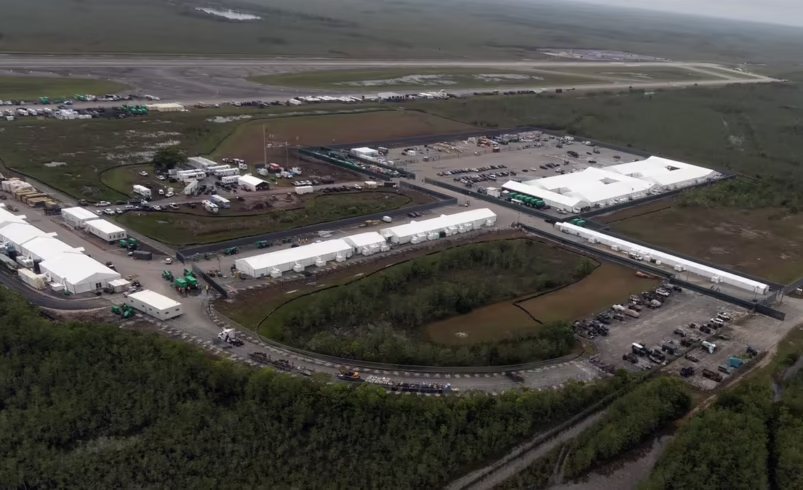Judge Blocks Expansion of Florida’s Alligator Alcatraz Detention Center
- August 8, 2025
- 0

A federal judge has intervened to halt the expansion of the “Alligator Alcatraz” detention facility in Florida, a project initiated by the Trump administration. This decision comes as part of ongoing legal scrutiny surrounding the facility’s operations and its impact on local communities and detainees. The judge’s order specifically prohibits any new construction or infrastructure enhancements at the site, although it allows the facility to continue housing migrant detainees under its current capacity.
Despite the halt on expansion, the detention center will maintain its existing operations. The facility, which has been a focal point of controversy due to its nickname and the conditions reported by various advocacy groups, will continue to detain migrants as per its current capacity. The judge’s ruling underscores a balance between operational continuity and addressing concerns over potential overcapacity and human rights issues.
The decision to stop further development at the Alligator Alcatraz site highlights ongoing tensions between federal immigration policies and judicial oversight. Local communities and advocacy groups have expressed mixed reactions, with some viewing the halt as a victory for human rights, while others are concerned about the implications for immigration enforcement. This ruling may set a precedent for how similar facilities are managed across the country.
As this is a developing story, further updates are anticipated as both legal teams prepare for potential appeals or additional hearings. Stakeholders are closely monitoring the situation to understand how this decision might influence broader immigration policy and detention practices in the United States.